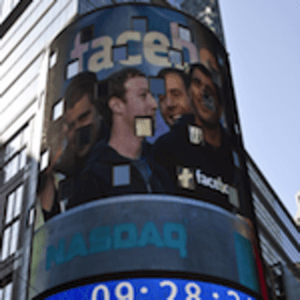Facebook was worth a lot more as a private company than it has been since going public. What do retail investors know that private investors didn’t?

Facebook shares have traded on secondary exchanges like SharesPost and SecondMarket since early 2009. Prior to the social network’s May 18, 2012, initial public offering, though, they were only available to accredited investors: banks and funds with assets over $5 million or individuals with a net worth above $1 million. Securities laws prevented small investors from buying Facebook shares prior to the IPO. As it turns out, the SEC was doing those investors a big favor.
On secondary exchanges, Facebook shares traded above $30 through 2011 and above $40 for most of this year. Since going public, the price has fallen 31% to $26.26 today. The last time Facebook stock was valued at that price was in December 2010.
Many observers thought the greater fool theory would apply, that small investors would rush to buy Facebook after its IPO. But small investors weren’t the fools this time. Anyone who bought Facebook shares on a private market and didn’t manage to sell in the first few, glorious hours after the public offering – when the stock traded above its $38 per share offering price – is out of luck for now.
Secondary markets provide a valuable service in trading shares of private companies, but they are much less liquid than public markets and, as the Facebook offering showed, not terribly good at determining how valuable these companies truly are. Not only did Facebook’s IPO confirm, as some had feared, a new tech-stock bubble; it dashed a belief among experienced investors that the company was worth far more than it actually was. And this belief lasted for well over a year. In time, Facebook may prove the private investors right. If the company addresses the concerns weighing down its share price, its value could rally to record highs. But it’s not clear how long that would take. In the meantime, the stock is getting cheaper by the day.
If secondary markets don’t say much about the value of fast-growing Internet companies, they do tell an important cautionary tale about those companies. Building a radically new business doesn’t happen as quickly as we often imagine. It’s one thing to challenge older companies in a competitive industry like online advertising. It’s another when your biggest rival in that market – say, Google – starts challenging you back. Retail investors shied from Facebook because they saw what qualified investors missed: that the company needed to figure out how to sell ads on mobile devices and keep revenue increasing as it matured.
It’s easy to say that the fund managers and high-net-worth investors who clamored to buy private Facebook shares at a 75% premium to its current value should have known better. But the mistake they made is common and widespread. In an industry that’s relentlessly focused on change, it’s tempting to assume that new business models will remake markets overnight. Even in tech, evolution is more pervasive than revolution.
















